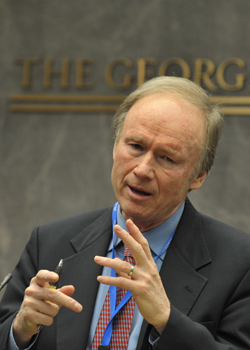Professor Bernadette Atuahene has just posted three exciting papers on property law and justice to ssrn. Click on the titles to download the papers.
Property Rights and the Demands of Transformation
The conception of property that a transitional state adopts is critically important because it affects the state’s ability to transform society. The classic conception of property gives property rights a certain sanctity that allows owners to have near absolute control of their property. But, the sanctity given to property rights has made land reform difficult and can serve as a sanctuary for enduring inequality. This is particularly true in countries where ownership is contested and land reform is essential due to pervasive past property theft. Oddly, the classical conception is flourishing in transitional states, like South Africa and Namibia, where transformation of the property status quo is essential. The specific question this Article addresses is: for states where past property dispossession threatens to destabilize the current state, is the classical conception appropriate or do these states require an alternative conception of real property? In this Article, I develop the transformative conception of real property to explore how the exigent need for societal transformation should inspire us to rethink property rights.
Property and Transitional Justice
Transitional justice is the study of those mechanisms employed by communities, states and the international community to deal with a legacy of systematic human rights abuses and authoritarianism in order to promote social reconstruction. There is a well developed transitional justice literature on how states can deal with past violations of civil and political rights, which discusses the value of truth commissions, and international and domestic prosecutions. The transitional justice literature on how to deal with past violations of property rights, however, is significantly less developed. The goal of this essay is to begin an important conversation about how transitional states can deal with multiple layers of past land dispossession in order to promote social reconstruction. I discuss the strengths and weakness of a state’s three main options: Maintaining the present property status quo, fully or partially returning to a prior status quo, or creating a new property status quo altogether. I argue that a state should decide which option it will choose in the context of a well-informed, inclusive public dialogue rather than through a less time consuming process involving only elites.
Things Fall Apart: The Illegitimacy of Property Rights In the Context of Past Property Theft
Past property theft is a volatile political issue that has threatened to destabilize many nascent democracies. How does a state avoid present-day property-related disobedience when past property theft causes a significant number of people to believe that the current property distribution is illegitimate? To explore this question, I first define legitimacy and past property theft relying on empirical understandings of the concepts. Second, I establish the relationship between a highly unequal property distribution that the general population views as illegitimate, and property-related disobedience. Third, I describe the three ways a state can achieve stability when faced with an illegitimate property distribution: by using its coercive powers, by attempting to change people's beliefs about the legitimacy of the property distribution, or by enacting a Legitimacy Enhancing Compensation Program (LECP), which strengthens the average citizen's belief that she ought to comply with the law. Fourth, I develop the legitimacy deficit model, which is a rational choice model that suggests when a state should enact a LECP to avoid property-related disobedience, which can devolve into broader instability. To best promote long-term stability, I argue that states should, at the very least, enact a LECP as the cost of illegitimacy begins to outweigh the cost of compensation. Lastly, since many of the model's relevant costs are subjective, I suggest a process states should use to determine and weigh the costs. In sum, the Article is intended to spark a debate about how compensation for past property theft can keep things from falling apart.



Leave a Reply